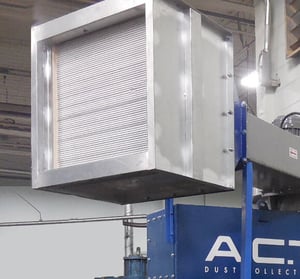
In industrial settings, maintaining air quality is crucial for the safety, efficiency, and regulatory compliance of your operations. HEPA after-filters, known for their high efficiency in capturing small particulate matter, play a significant role in ensuring clean air in various industrial applications. Adding a HEPA after-filter to your dust collection system can help clean the air of tiny particles that a dust collector may not trap.
What Is a HEPA Filter?
HEPA (High-Efficiency Particulate Air) filters are designed to trap at least 99.97% of particles as small as 0.3 microns. These filters are composed of a dense mat of randomly arranged fibers, typically made from fiberglass. The efficiency of HEPA filters makes them suitable for a variety of applications, from cleanrooms to shipyards.
As air passes through a HEPA filter, particles are trapped by diffusion, interception, and impaction. This multifaceted filtration process ensures that even very small particles are effectively captured, making HEPA filters one of the most efficient filtration methods available.
How Do HEPA After-Filters Work?
When dirty air and dust particles are drawn into a dust collector, the filters work to allow only clean air to pass through while capturing the dust particles. As the dirty air flows through the main filters in the unit, the primary filters remove the larger particles of dust. In some cases, ultrafine particulates may pass through the primary filters. A HEPA housing and filters are the solution to capturing microscopic particles. The HEPA after-filter is placed on the clean air side of the unit and will further clean the air before it returns to the building or environment .
A HEPA after-filter is an additional set of filters, typically 24” x 24” x 12” in size, that can be added at the end of the process to further purify the air and capture dust. It’s an extra option that can be added to specific applications and circumstances. The combination of our HEPA filters and our industry-leading Nano Elite cartridge filters helps to provide the ultimate in air filtration. Talk to a dust collection team member to determine the right setup for your system and how to install the HEPA after-filter.
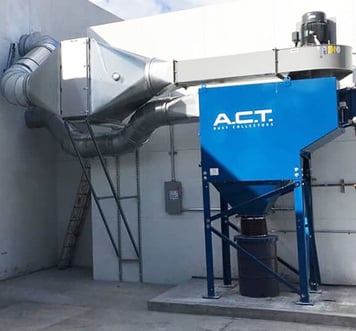
Pros and Cons of HEPA Filters
The primary advantage of HEPA filters is their exceptional efficiency in capturing fine particulate matter, including dust, pollen, and other airborne particles. This high level of filtration is particularly beneficial in industries where air quality standards are stringent, such as pharmaceuticals, food processing and electronics manufacturing.
However, HEPA filters also have some drawbacks. Their dense structure can lead to higher pressure drops, which can impact airflow and energy consumption. Additionally, HEPA filters require regular maintenance and replacement to maintain their effectiveness, which can contribute to operational costs.
Industrial Applications of HEPA Filters
HEPA filters are used for a broad range of industrial applications where air quality is ultra-important. Some common uses include:
Powder Coating:
HEPA filters are used in powder coating booths to capture overspray particles, ensuring a clean work environment and preventing contamination during the coating process. They help maintain high-quality finishes by filtering out particulate matter.
Metalworking:
In metalworking, HEPA filters are used in dust collection systems to remove fine metal particles and fumes generated during cutting, grinding and welding processes.
Food Processing:
HEPA filters are critical in food processing facilities to maintain a sterile environment by filtering out airborne contaminants such as dust and bacteria.
Pharmaceutical:
HEPA filters are used in pharmaceutical cleanrooms to remove airborne particles, including bacteria and viruses, ensuring a sterile production environment for medications and vaccines.
Laser or Plasma Cutting:
HEPA filters are employed in laser or plasma-cutting operations to capture the fine particulate matter and fumes produced during the cutting process.
Maintaining HEPA Filters in Industrial Settings
Proper maintenance is crucial for ensuring the longevity and efficiency of HEPA filters. Regular inspections and timely replacements are necessary to prevent filter clogging and ensure consistent airflow.
Industrial environments often require pre-filters to capture larger particles before air reaches the HEPA filter. This step helps extend the life of the HEPA filter and reduces maintenance costs. Additionally, monitoring pressure drops across the filter can provide insight into when the filter needs to be replaced.
Choosing the Right HEPA Filter for Your Application
When choosing the appropriate HEPA filter, several factors should be considered. These include the specific requirements of your industry, the type of particulate matter present and the operational environment. Key considerations include:
Filtration Efficiency: Ensure the filter meets the required efficiency standards for your industry.
Airflow Requirements: Choose a filter that maintains adequate airflow while achieving the desired level of filtration.
Maintenance and Replacement Costs: Factor in the costs of regular maintenance and filter replacements.
Compatibility with Existing Systems: Ensure the filter is compatible with your current air filtration or dust collection system.
We’re Here to Help
Understanding the role of HEPA after-filters in industrial air filtration is critical for optimizing air quality and maintaining a safe work environment. By choosing the right HEPA after-filter and ensuring proper maintenance, you can enhance the efficiency and safety of your operations.
For more information or personalized advice on selecting the best HEPA filter for your industrial needs, contact our experts today. We’re here to help you achieve the highest standards of air quality and regulatory compliance in your facility.


























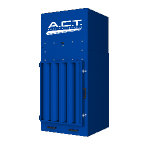
%20Collectors%20Image.png?width=143&height=143&name=ADC%20(Ambient)%20Collectors%20Image.png)
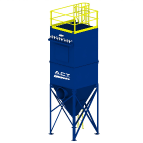

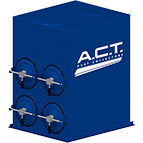
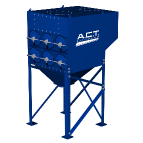
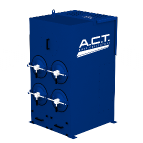


















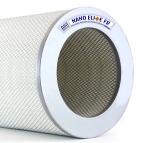


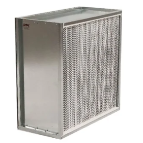
.png?width=240&height=91&name=ACT%20Dust%20Collectors%20Logo%20Solid%20White%202020%20(1).png)
.png?width=148&height=149&name=usa-manufactured-dust-collectors%20(1).png)